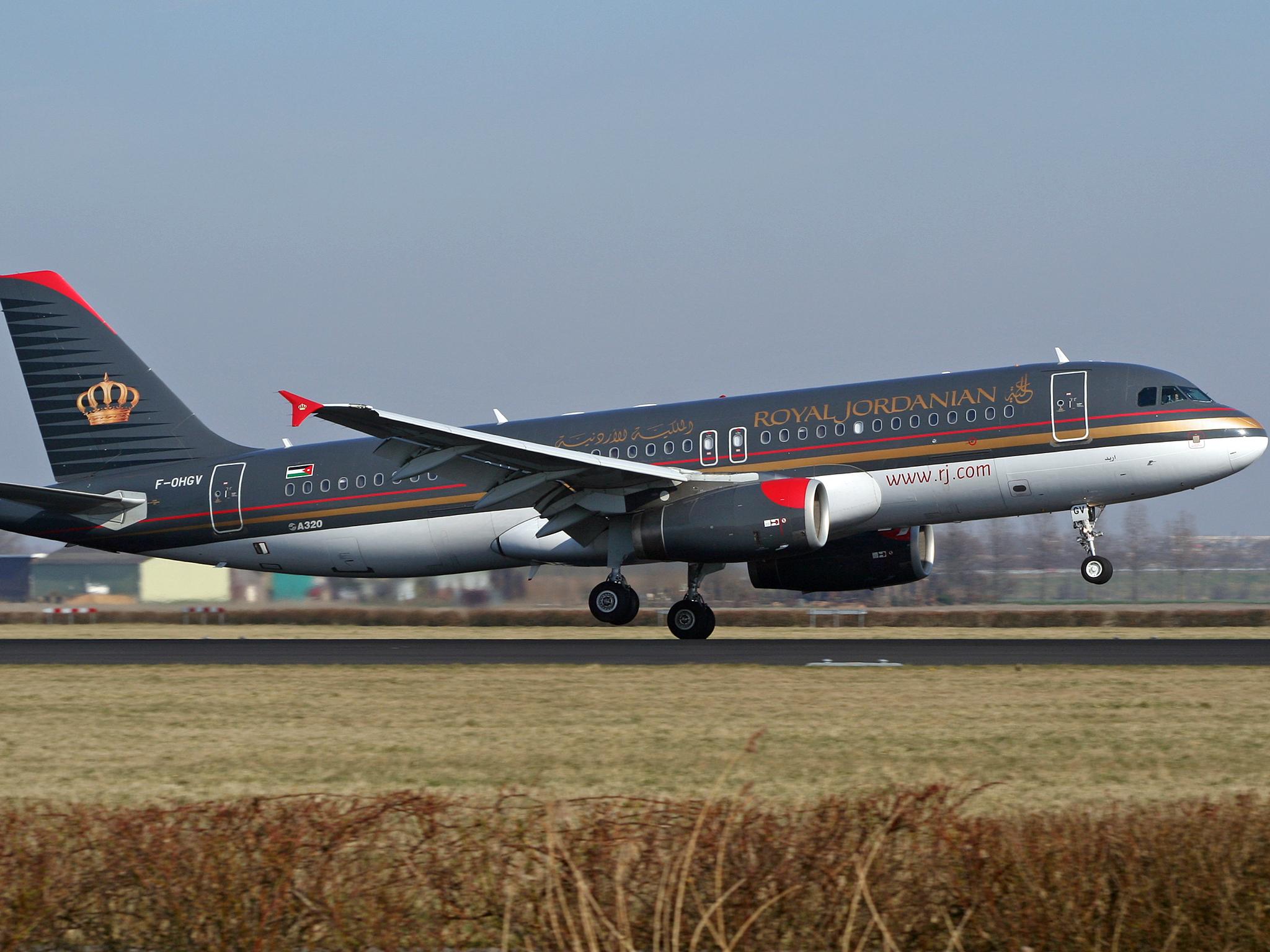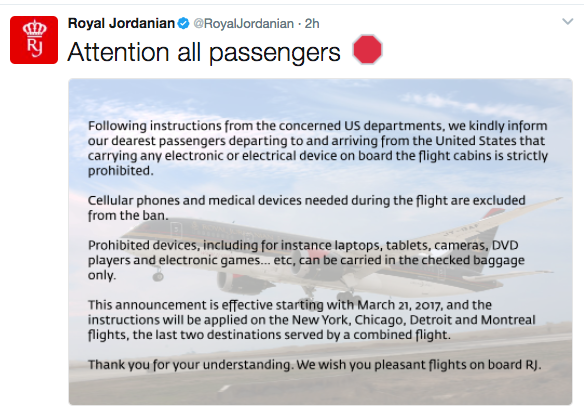US bans passengers on at least 12 airlines from taking electronic devices on board
Airlines believed to include Emirates, Etihad and Qatar Airways

Your support helps us to tell the story
From reproductive rights to climate change to Big Tech, The Independent is on the ground when the story is developing. Whether it's investigating the financials of Elon Musk's pro-Trump PAC or producing our latest documentary, 'The A Word', which shines a light on the American women fighting for reproductive rights, we know how important it is to parse out the facts from the messaging.
At such a critical moment in US history, we need reporters on the ground. Your donation allows us to keep sending journalists to speak to both sides of the story.
The Independent is trusted by Americans across the entire political spectrum. And unlike many other quality news outlets, we choose not to lock Americans out of our reporting and analysis with paywalls. We believe quality journalism should be available to everyone, paid for by those who can afford it.
Your support makes all the difference.At least 12 airlines have been ordered by the US Department of Homeland Security to tell passengers they cannot take electronic devices bigger than a mobile phone as hand luggage on flights to the US.
The US authorities are believed to be concerned about a possible attempt to down a plane by smuggling explosives on board in the battery compartment of an electronic device. Officials in Washington DC have told the affected carriers that they should not allow passengers to take laptop or tablet computers, cameras or electronic games into the aircraft cabin.
The Independent has analysed the flight schedules from the Middle East and Africa and identified a dozen non-American airlines from the region that fly to the US: Arik Air from Lagos; Egyptair from Cairo; Emirates from Dubai and Athens; Ethiopian from Addis Ababa, Lome in Togo and Dublin; Etihad from Abu Dhabi; Kuwait Airways from Kuwait; Qatar Airways from Doha; Royal Air Maroc from Casablanca; Royal Jordanian from Amman; Saudia from Jeddah and Riyadh; South African Airways from Johannesburg and Dakar; and Turkish Airlines from Istanbul.
The news first emerged in a now-deleted tweet from Royal Jordanian, which flies between its hub in Amman and New York, Detroit and Chicago: “Following instructions from the concerned US departments, we kindly inform our dearest passengers departing to and arriving from the United States that carrying any electronic or electrical device on board the flight cabins is strictly prohibited.”
The airline now says only: “Further updates will be announced soon regarding #electronicsban.”

Prohibited devices are supposed to be carried in checked baggage, though this has caused confusion because of the fire risk caused by lithium batteries in aircraft holds.
Three years ago, the US stipulated that all electronic devices carried into the cabin must be capable of being powered up. Intelligence sources in 2014 suggested that the material for a bomb could be implanted in the battery compartment of a mobile phone or computer.
The UK Department for Transport announced identical rules shortly afterwards, though they have never been seriously enforced.
Join our commenting forum
Join thought-provoking conversations, follow other Independent readers and see their replies
Comments